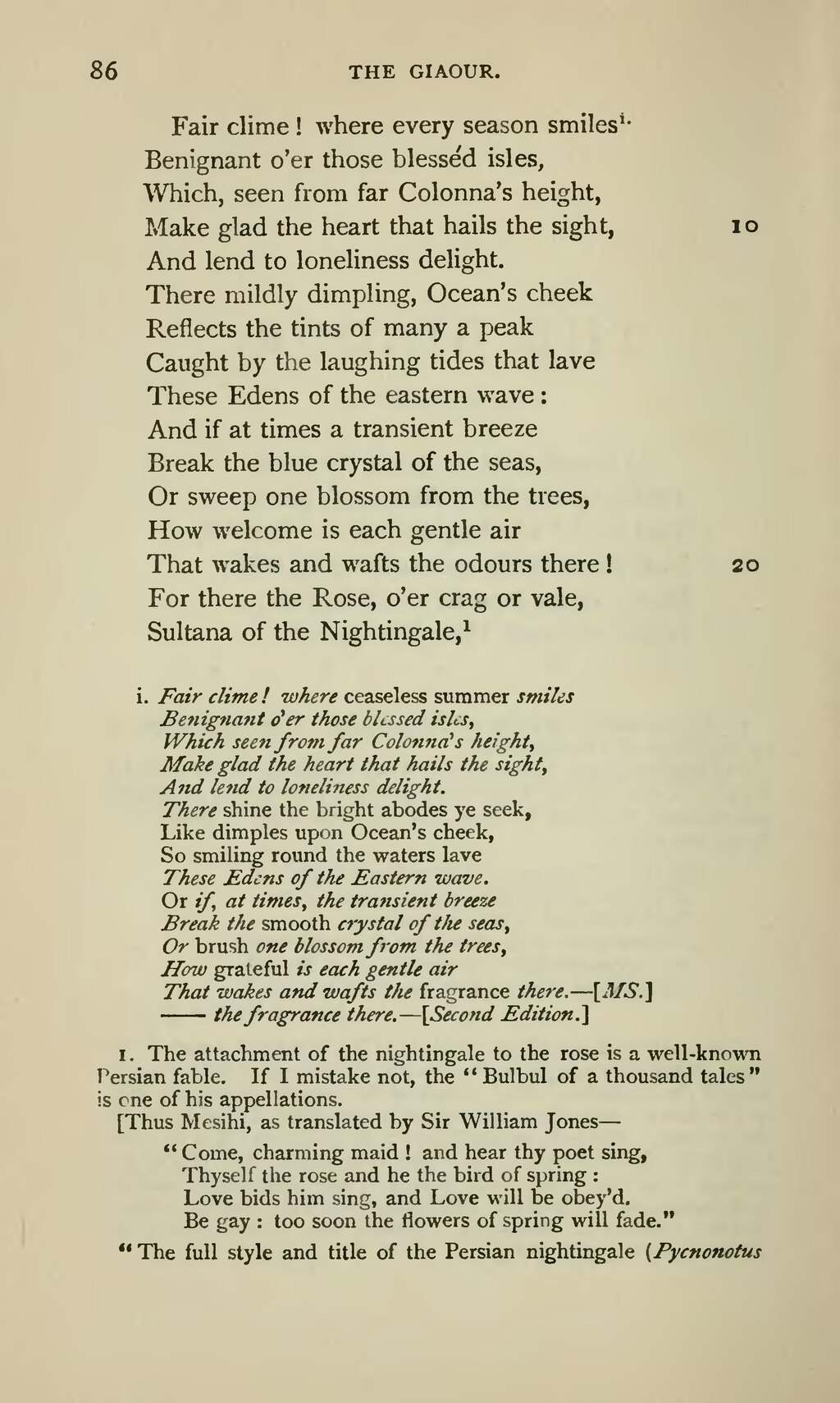86
THE GIAOUR.
86
Fair clime! where every season smiles[lower-roman 1]
Benignant o'er those blesséd isles,
Which, seen from far Colonna's height,
Make glad the heart that hails the sight, 10
And lend to loneliness delight.
There mildly dimpling, Ocean's cheek
Reflects the tints of many a peak
Caught by the laughing tides that lave
These Edens of the eastern wave:
And if at times a transient breeze
Break the blue crystal of the seas,
Or sweep one blossom from the trees,
How welcome is each gentle air
That wakes and wafts the odours there! 20
For there the Rose, o'er crag or vale,
Sultana of the Nightingale,[decimal 1]
Benignant o'er those blesséd isles,
Which, seen from far Colonna's height,
Make glad the heart that hails the sight, 10
And lend to loneliness delight.
There mildly dimpling, Ocean's cheek
Reflects the tints of many a peak
Caught by the laughing tides that lave
These Edens of the eastern wave:
And if at times a transient breeze
Break the blue crystal of the seas,
Or sweep one blossom from the trees,
How welcome is each gentle air
That wakes and wafts the odours there! 20
For there the Rose, o'er crag or vale,
Sultana of the Nightingale,[decimal 1]
Variants
- ↑ Fair clime! where ceaseless summer smiles
Benignant o'er those blessed isles,
Which seen from far Colonna's height,
Make glad the heart that hails the sight,
And lend to loneliness delight.
There shine the bright abodes ye seek,
Like dimples upon Ocean's cheek,
So smiling round the waters lave
These Edens of the Eastern wave.
Or if, at times, the transient breeze
Break the smooth crystal of the seas.
Or brush one blossom from the trees,
How grateful is each gentle air
That wakes and wafts the fragrance there.—[MS.]
the fragrance there.—[Second Edition.]
Notes
- ↑ The attachment of the nightingale to the rose is a well-known Persian fable. If I mistake not, the "Bulbul of a thousand tales" is one of his appellations.
[Thus Mesihi, as translated by Sir William Jones—"The full style and title of the Persian nightingale (Pycnonotus"Come, charming maid! and hear thy poet sing,
Thyself the rose and he the bird of spring:
Love bids him sing, and Love will be obey'd.
Be gay: too soon the flowers of spring will fade."
